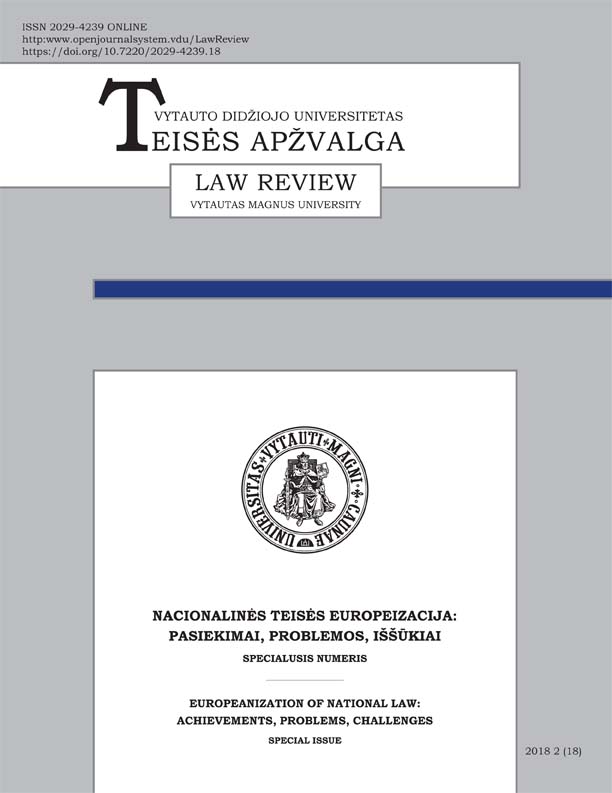The Role of the EU and Human Rights Law in the Family Laws of the Member States
The Role of the EU and Human Rights Law in the Family Laws of the Member States
Author(s): Kristi JoametsSubject(s): Law, Constitution, Jurisprudence, Civil Law, Human Rights and Humanitarian Law, EU-Legislation
Published by: Vytauto Didžiojo Universitetas
Keywords: Registered partnership; Justification process; Family law; EU values;
Summary/Abstract: For a long time two approaches have been contrasted to each other: differences of cultures of states which do not allow to harmonize the family laws and a liberal approach by which the common European culture and values allows to unify the family laws of European states. In recent years the supranational identity has become more significant pushing aside the concept that culture is an obstacle for harmonization of family laws. European Court of Human Rights has given a pattern that certain human rights can be restricted when it is needed to protect certain more important value of the state. However, court has stated that this justification process must consist of correct proportionality test. Unfortunately, in practice the justification right has been used very often but proportionality test has not been made. Also, in this justification process the changes of the society should be considered – supranational identity and more liberal approaches to the family life impact this process. One can argue that it is more complicated to find a justified reason not to allow same-sex marriages or cohabitation when follow correctly the proportionality test in the justification process. Estonian Partnership Registration Act is a good example to show what such inappropriate proportionality test in a justification process can cause. Author analyses the proportionality test in the adoption process and implementation practice of Estonian Partnership Registration Act to dicuss and describe the mess what can be caused when proportionality test has not been used in an appropriate way if used at all.
Journal: Teisės apžvalga
- Issue Year: 2018
- Issue No: 2 (18)
- Page Range: 265-276
- Page Count: 12
- Language: English

